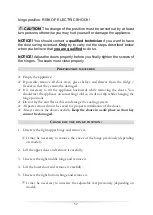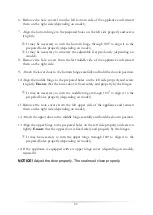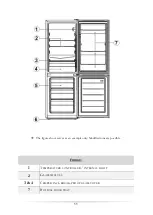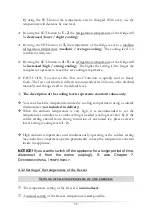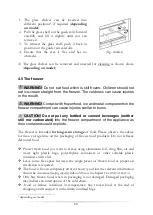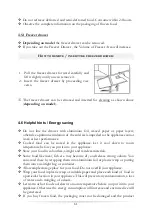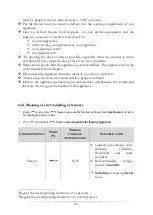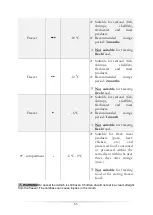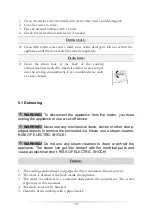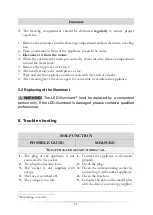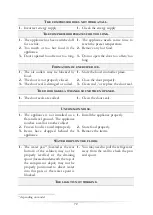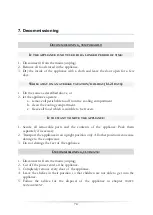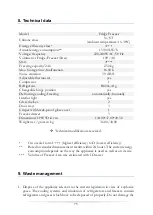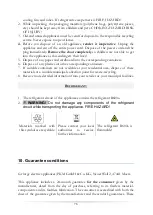
65
➢
Butter can be spoiled by strong smelling foods so it is best stored in a sealed
container.
➢
Eggs should be stored in the fridge compartment.
R
ED MEAT
➢
Place fresh red meat on a plate and cover it with waxed paper, plastic wrap or
foil.
➢
Store cooked and raw meat on separate plates. This will prevent any juice lost
from the raw meat from contaminating the cooked product.
P
OULTRY
➢
Fresh whole birds should be rinsed inside and outside with cold running water,
dried and placed on a plate covered with plastic wrap or foil.
➢
Poultry pieces should also be stored this way.
➢
Whole poultry must only be filled immediately before cooking to avoid food
poisoning.
F
ISH AND SEAFOOD
➢
Whole fish and fillets should be used on the day of purchase. Until required, they
should be stored in the fridge on a plate which is covered with plastic wrap, waxed
paper or foil loosely.
➢
If storing overnight or longer, take particular care to select very fresh fish.
➢
Whole fish should be rinsed in cold water to remove loose scales and dirt and
then patted dry with paper towels. Place whole fish or fillets in a sealed plastic
bag.
➢
Keep shellfish chilled at all times. Use within 1
–
2 days.
P
RECOOKED FOOD AND LEFTOVERS
➢
These should be stored in suitable covered containers so that the food will not
dry out.
➢
Keep for 1-2 days only.
➢
Reheat leftovers
once
only and until steaming hot.


